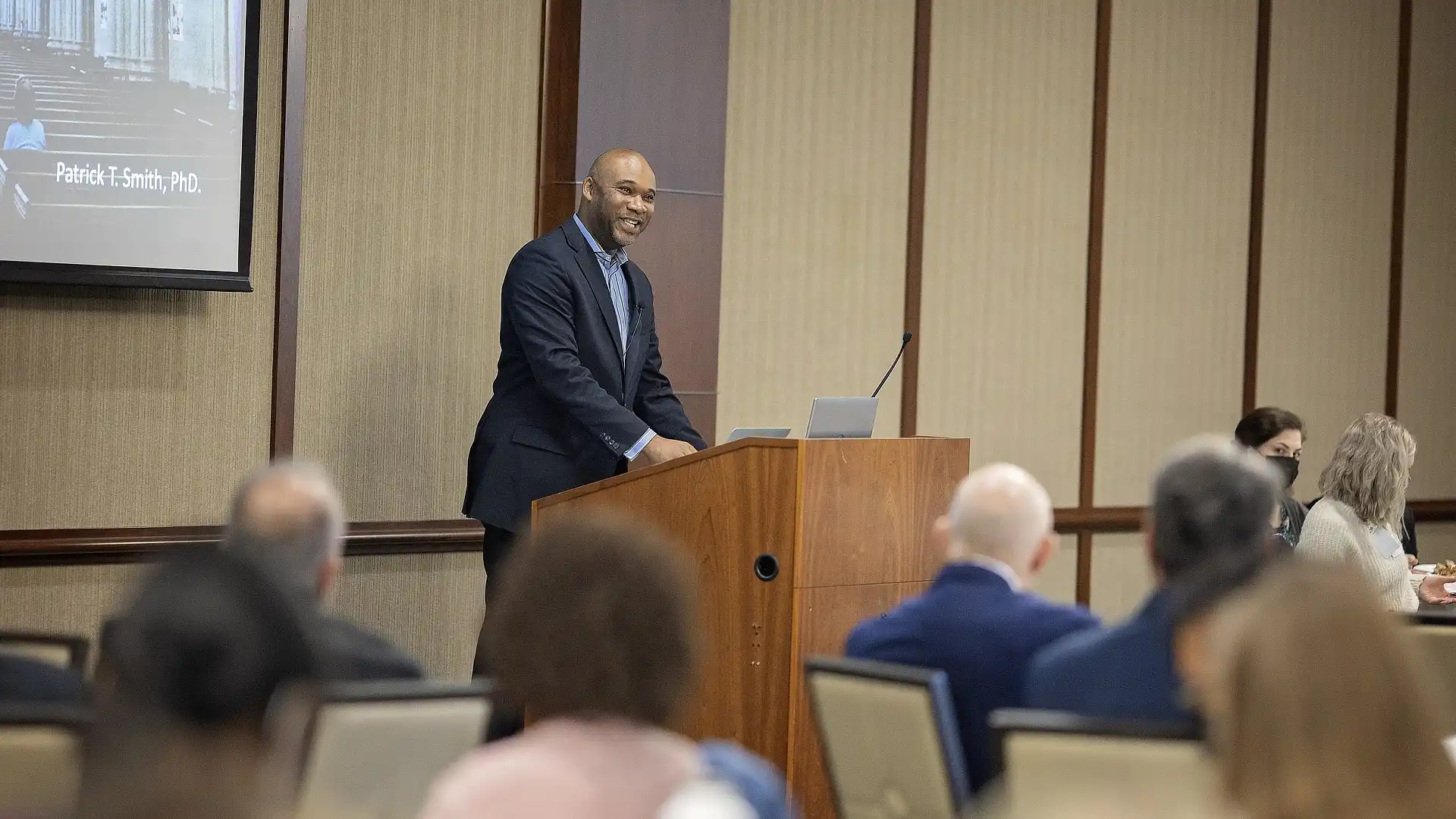Healthcare Ethics and Law Institute 2026
Trust in Science and Government: What about Vaccinations?
Event Information Registration
February 6, 2026 – Seibert Hall
Samford University’s Healthcare Ethics and Law Institute’s annual conference is designed to support Alabama institutional ethics committees at all levels as they navigate today’s most pressing health care and legal issues. This year’s subject, “Trust in Science and Government: What About Vaccinations?” will examine vaccine hesitancy, public trust and the ethical challenges surrounding vaccinations.
Sponsored by: ![]()
Schedule
8:00 a.m.
Welcome
8:15 – 9:00 a.m.
Setting the Stage: Misinformation: how did we get here and how can we escape?
Speaker: Tom Huddle, MD, PhD, Professor of Medicine, UAB
9:05 – 9:45 a.m.
Philosophical Aspects: Aquinas on our Duties to our Community
Speaker: Emily McCarty, PhD, Assistant Professor, Department of Classics and Philosophy, Samford University.
9:45 – 9:55 a.m.
Break
10:00 – 10:45 a.m.
Health Care Aspects: Vaccine Skepticism & Hesitancy: Definitions, Experience, Management
Speaker: Adam Cifu, MD, Professor of Medicine, University of Chicago School of Medicine. Co-Editor, Sensible Medicine Substack.
10:50 – 11:50 a.m.
Pellegrino Award/KEYNOTE: Reflections on Trust in Medicine and the Clinician’s Response to Vaccine Hesitancy
Awardee: Douglas Diekema, MD, MPH, Professor, Division of Bioethics and Palliative Care, Department of Pediatrics, University of Washington School of Medicine. Co-Director of Education, Treuman Katz Center for Pediatric Bioethics and Palliative Care, Chair, Institutional Review Board Committee Seattle Children’s
12:00 a.m. – 12:45 p.m.
Lunch Break
12:45 – 1:30 p.m.
Legal Aspects: Trust and Coercion: Historical and contemporary roles of legal coercion and incentives in regard to adult and pediatric vaccinations
Speaker: David Smolin, JD, Harwell G. Davis Professor of Constitutional Law and Director, Center for Children, Law and Ethics, Cumberland School of Law, Samford University.
1:30 – 2:15 p.m.
Health Care Aspects: Childhood Immunizations: A Healthy Approach to Advocating for the Common Good
Speaker: Scott James, MD, Associate Professor, Pediatric Infectious Diseases, Director, Pediatric Infectious Diseases Fellowship Program, UAB Pediatrics.
2:15 – 2:30 p.m.
Break
2:30 – 3:15 p.m.
Community Health Aspects: Restoring Trust Through Community Health: The Role of Pharmacists in Vaccine Confidence and Access
Speakers: Jennifer Campbell, PharmD and Pauline Long, PharmD, Co-owners of MedsPLUS Consulting, LLC, Birmingham, AL.
3:15 –3:45 p.m.
Panel Discussion: Where do we go from here?
All available speakers
3:45 – 4:00 p.m.
Wrap-up and evaluation
Speakers
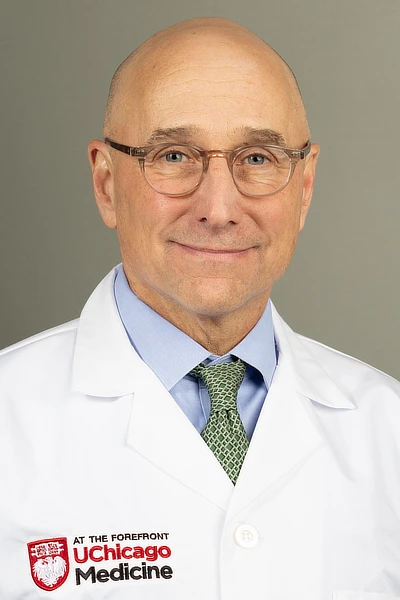 Adam Cifu, MD
Adam Cifu, MD
Dr. Cifu is a professor of medicine and general internist at the University of Chicago. He received his medical degree from Cornell University Medical College in 1993 and completed his residency at Beth Israel Hospital in Boston before joining the University of Chicago faculty in 1997.
He practices in both inpatient and outpatient settings and works as an educator and researcher. He is the author of more than 140 peer-reviewed publications, the co-author of the textbook Symptom to Diagnosis: An Evidence-Based Guide and the author of the lay audience book Ending Medical Reversal. Since 2022, he has written for Sensible Medicine, a shared Substack website.
His honors include the Department of Medicine Award for Clinical Teaching, the Department of Medicine Award for Preclinical Teaching, the Distinguished Educator/Mentor Award from the Biological Sciences Division and the University’s Academic Communicators Network Excellence Award. He is a master in the Academy of Distinguished Medical Educators at the University of Chicago. He was selected as a favorite faculty member by the graduating class of the Pritzker School of Medicine 17 times.
 Douglas Diekema, MD
Douglas Diekema, MD
Dr. Douglas S. Diekema is a professor of pediatrics at the University of Washington School of Medicine with adjunct appointments in the Department of Bioethics and Humanities in the School of Medicine and in the School of Public Health. He founded the Treuman Katz Center for Pediatric Bioethics at Seattle Children’s Research Institute in 2004 and currently serves as its director of education. The center received the Cornerstone Award from the American Society of Bioethics and Humanities in 2024.
He is a past chair of the Committee on Bioethics of the American Academy of Pediatrics, a past chair of the Secretary’s Advisory Committee for Human Subjects Protections (SACHRP) in the U.S. Department of Health and Human Services and a former board member of the American Society for Bioethics and Humanities. He is currently a member of the FDA’s Pediatric Advisory Committee.
Dr. Diekema is the author of numerous scholarly publications in medical ethics and pediatric emergency medicine and an editor of Clinical Ethics in Pediatrics: A Case-based Textbook. He is an elected fellow of the Hastings Center and was honored by the American Academy of Pediatrics as the 2014 recipient of the William G. Bartholome Award for Ethical Excellence.
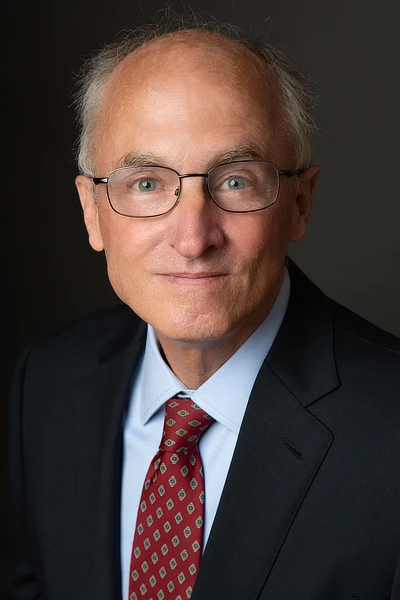 Thomas S. Huddle, MD
Thomas S. Huddle, MD
Thomas S. Huddle is a professor of medicine emeritus in the Division of General Internal Medicine and Population Science at the Heersink School of Medicine at the University of Alabama at Birmingham. Dr. Huddle earned his medical degree and a doctorate in the history of medicine from the University of Illinois at Urbana-Champaign, then completed internal medicine training at the University of Wisconsin Hospitals and postdoctoral historical work as a Robert Wood Johnson fellow at the University of Pennsylvania.
He taught medical students and residents during his career as a clinician educator at UAB and directed the medical school’s first-year Patient, Doctor and Society course. In his writing, he seeks to connect the world of professional work with issues related to medical professionalism, clinical ethics, medical education and the relationship between medicine and society.
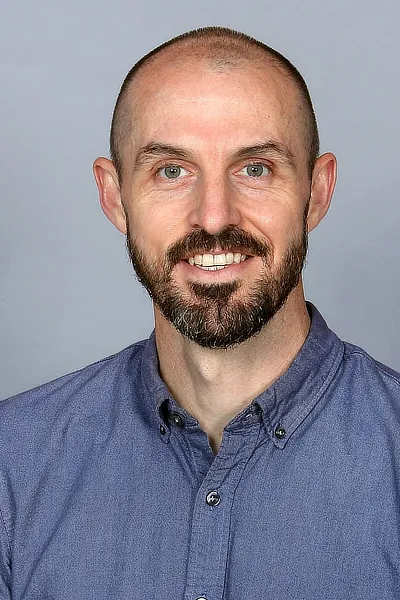 Scott H. James, MD
Scott H. James, MD
Scott H. James, MD, is an associate professor of pediatrics in the Division of Pediatric Infectious Diseases at the University of Alabama at Birmingham. He serves as the UAB Pediatric Infectious Diseases Fellowship Program director and is the principal investigator of an NIH-funded research laboratory focused on antiviral screening and drug development. He is also active in multicenter clinical research trials related to congenital and perinatal infections.
Nationally, Dr. James serves on the Council of Pediatric Subspecialties, is a member of the steering committee of the Subspecialty Pediatrics Investigators Network and chairs the Workforce Development Committee of the Pediatric Infectious Diseases Society. He has been elected to membership in the Society for Pediatric Research, Alpha Omega Alpha and the Arnold P. Gold Humanism Honor Society.
He and his wife, Jaime, have four children and live in Birmingham, Alabama.
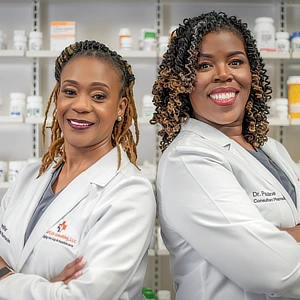 Pauline Long, PharmD, and Jennifer Campbell, PharmD
Pauline Long, PharmD, and Jennifer Campbell, PharmD
Pauline Long, PharmD, and Jennifer Campbell, PharmD, are community health pharmacists and co-founders of MedsPLUS Consulting Pharmacy & Wellness Center in Birmingham, Alabama. Both are graduates of Samford University’s McWhorter School of Pharmacy. Together, they lead a practice dedicated to advancing preventive care, strengthening vaccine confidence and improving chronic disease outcomes through innovative pharmacist-led services and community partnerships.
Their mission is to engage, educate and empower patients so they can make confident, informed decisions about their health. Through their work at MedsPLUS, they integrate clinical expertise, ethical responsibility and deep community partnership to reduce disparities and strengthen trust in vaccines and preventive care.
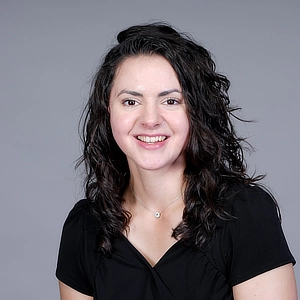 Emily McCarty, PhD
Emily McCarty, PhD
Emily McCarty, Ph.D., is an assistant professor of philosophy at Samford University. Her interests lie at the intersection of metaphysics, ethics and the philosophy of religion. McCarty serves on the executive committee for the Society of Christian Philosophers. Her research focuses on the problem of evil and questions about the nature of God. She is also interested in applying the philosophy of medieval thinker Thomas Aquinas to modern concerns.
 Leonard J. “Jack” Nelson III, JD, LLM
Leonard J. “Jack” Nelson III, JD, LLM
Leonard J. “Jack” Nelson III is an emeritus professor at Cumberland School of Law, where he taught for 30 years. He earned a Bachelor of Arts magna cum laude from the University of Washington in 1970 and was elected to Phi Beta Kappa. He received his J.D. cum laude from Gonzaga University School of Law in 1974.
Following law school, Nelson served as a law clerk for Charles F. Stafford, chief justice of the Washington State Supreme Court. In 1984, he earned an LL.M. from Yale Law School and joined the faculty at Cumberland School of Law, where he rose to the rank of full professor. He was named emeritus professor in 2014. Nelson has published extensively in the field of health law.
David Smolin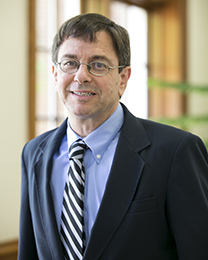
David Smolin is the Harwell G. Davis Professor of Constitutional Law, and director of the Center for Children, Law and Ethics at Samford University Cumberland School of Law. He has served as an independent expert for the Hague Conference on Private International Law (HCCH) on intercountry adoption issues. He has served as an external expert for the International Reference Centre for the rights of children deprived of their family, of the International Social Service (ISS/IRC), on issues related to children’s rights, adoption, and surrogacy. He is a member of the core expert group that developed the Verona Principles on international standards for surrogacy. He serves as a special advisor for the Swiss NGO Child Identity Protection (CHIP). He also serves on the Ethics Committee at Children’s Hospital of Alabama. He teaches in the areas of family and juvenile law, constitutional law, bioethics and law, children’s rights, human rights, law and religion, and criminal law and procedure, and writes on areas related to children and the law, the sale, trafficking, and exploitation of children, children’s rights, human rights, constitutional law, bioethics and law, and religion and law. Much of his work focuses on the protection of vulnerable children. Many of his publications are available for free download at his SSRN author’s page. View David Smolin's full bio here.

